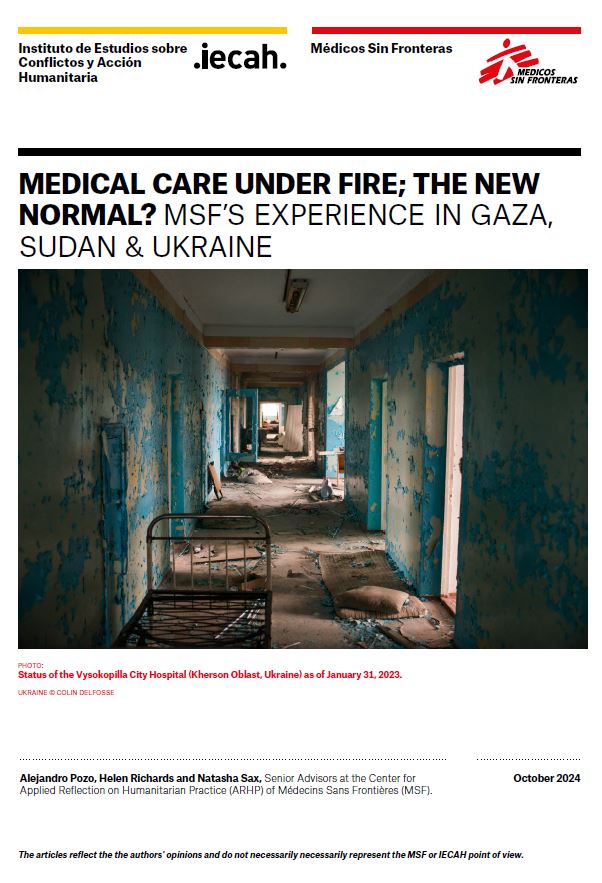Medical Care Under Fire; The New Normal? The MSF’S experience in Gaza, Sudan & Ukraine
In today’s urban warfare, healthcare is one of the casualties of warfare, with devastating impacts for the civilian population
The passing of Resolution 2286 marked a moment of “hope,” and was accompanied by a proliferation of initiatives to report and monitor attacks on medical and humanitarian missions. However, while world leaders appeared more united than ever on the protection of health care, simultaneously, the datasets have recorded skyrocketing numbers of attacks on both health care and humanitarians in the past 8 years.
During armed conflict, medical facilities, medical transports, and medical personnel are entitled to a specific level of protection, in view of their life-saving role. All parties to the conflict must not only to refrain from targeting medical facilities, personnel, and transports, but must also take active measures to ensure they are able to fulfil their life-saving function. However, in today’s urban warfare, we increasingly see that healthcare is among the casualties of warfare, with devastating impacts for the civilian population.


 English
English